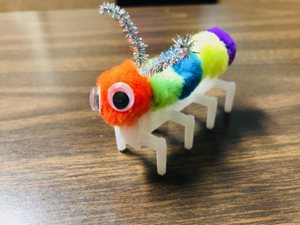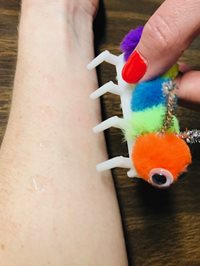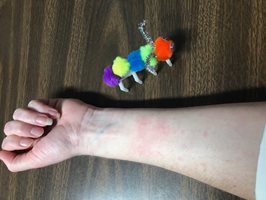Many people know they have allergies because at of sneezing, itching and other symptoms that make miserable (especially if they happen at the same time each year). However, figuring out what allergens are the problem can be a guessing game without testing. And once you’ve learned what your allergens are, you can properly manage and treat your allergies, helping you be healthier and improve your quality of life. People whose allergies are better controlled have fewer symptomatic days, but also have fewer respiratory infections and illnesses than patients who have severe allergy flare-ups.
Winter is a great time for allergy testing
If you have allergy symptoms like sneezing, runny nose, and itching in the throat or eyes, the winter months can be a great time to do allergy testing. An evaluation by a board certified allergist now can prepare you for the tougher months in the spring, summer and fall!
Another key reason to have testing in the winter is that people must taking antihistamine medications before skin-testing appointments. There are fewer potential allergens outside during cold months, so patients are less likely to need their allergy medicine. Most people easily control any symptoms with nasal sprays and decongestants during the wait time.
So, how do you get started?
Talk to an allergy doctor. An allergist/immunologist has specialized training and experience to diagnose specific allergens that trigger your symptoms. An in-person evaluation and skin testing are usually enough to identify what’s bothering you. At Deaconess Clinic Allergy, patients can schedule
new patient appointments online. My partners and I can consult with patients about their next step, which is often allergy testing.
What does allergy skin testing involve? 
Skin testing is the most sensitive method for determining allergic sensitivities to inhalant allergens such as pollens, dust mites, molds and animal dander. It is a fast, safe and reliable method, providing results in as few as 30 minutes.
To do the skin test, your allergist will select regional allergens (trees, grasses, weeds and molds) for testing. The allergy skin testing procedure involves introduction of allergen extracts via a special applicator device. The device gently scratches the top layer of the skin, and does not contain any needles. These devices

look a little bit like caterpillars so in our office we have the devices dressed up as caterpillars to show the kids that there are no needles involved.
There is NO bleeding with the testing. The allergy skin test is very well tolerated by most patients of all ages.
Anywhere from 20 to 70 different allergens are tested and they are usually placed on the arm or the back. Some patients may also receive intradermal testing, where a small amount of the allergen is injected under the skin of the arm to see if it causes a reaction. Localized wheal responses (bumps similar to mosquito bite reactions) are measured 15 minutes after the tests are applied to the skin.
If test results show that you are allergic, your allergist will create a

customized plan for controlling your allergies. This means preventing and treating symptoms.
These steps are used to manage your allergies:
- Avoid or limit contact with your allergens.
- Take medicine to relieve your symptoms. Your allergist may prescribe medicines such as antihistamines, decongestants, nose (nasal) sprays, or eye drops.
- Start allergy immunotherapy (allergy injections) if the allergist recommends them. The injections contain a tiny amount of the allergen you’re sensitive to with the amount increasing over time. Your body becomes used to the allergen and no longer reacts to it.
The goal of immunotherapy is to decrease allergic symptoms, minimize medication use and prevent the development of asthma in children. Allergy skin testing should always be performed by a board certified allergist, an trained expert who knows how to test for, diagnose and treat your allergies.
(More information about managing allergies is available in several
other blogs from Deaconess Clinic Allergy.)
How are Allergists different than ENTs?
Allergy symptoms can affect your ears, nose and throat making it difficult to know what kind of doctor to see - an allergist or an ear, nose, and throat specialist. Here’s the difference between the two medical providers:
A board certified allergist receives 2-3 years of specialized training in the diagnosis, management and treatment of allergic diseases. This specialized training is in addition to his or her pediatric and/or internal medicine board certification. An allergist’s main focus and expertise is on your allergies. This may include nasal allergies but may also include eye allergies, skin allergies, medication allergies, asthma, food allergies or stinging insect allergies.
An Ear, Nose and Throat specialist (ENT), also called an otolaryngologist, is a doctor who specializes in the surgical management of diseases of the ear, nose and throat. Most of the time, surgery is not necessary for people who have allergies. Sometimes, especially in patients who have sinus inflammation and infection, there can be some overlap in the two specialties.
At Deaconess Clinic, we have both
allergists and
ENTs who work together to manage patients with upper respiratory allergies and diseases of the sinuses.